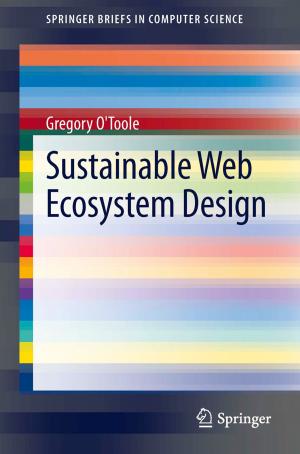Real World Ecology
Large-Scale and Long-Term Case Studies and Methods
Nonfiction, Health & Well Being, Medical, Reference, Biostatistics, Science & Nature, Science, Biological Sciences, Ecology, Nature| Author: | ISBN: | 9780387779423 | |
| Publisher: | Springer New York | Publication: | November 20, 2008 |
| Imprint: | Springer | Language: | English |
| Author: | |
| ISBN: | 9780387779423 |
| Publisher: | Springer New York |
| Publication: | November 20, 2008 |
| Imprint: | Springer |
| Language: | English |
Ecological and environmental research has increased in scope and complexity in the last few decades, from simple systems with a few managed variables to complex ecosystems with many uncontrolled variables. These issues encompass problems that are inadequately addressed using the types of carefully controlled experiments that dominate past ecological research. Contemporary challenges facing ecologists include whole ecosystem responses to planned restoration activities and ecosystem modifications, as well as unplanned catastrophic events such as biological invasions, natural disasters, and global climate changes. Major perturbations implicated in large-scale ecological alterations share important characteristics that challenge traditional experimental design and statistical analyses. These include:
* Lack of randomization, replication and independence
* Multiple scales of spatial and temporal variability
* Complex interactions and system feedbacks.
In real world ecology, standard replicated designs are often neither practical nor feasible for large-scale experiments, yet ecologists continue to cling to these same standard designs and related statistical analyses. Case studies that fully elucidate the currently available techniques for conducting large-scale unreplicated analyses are lacking.
Real World Ecology: Large-Scale and Long-Term Case Studies and Methods is the first to focus on case studies to demonstrate how ecologists can investigate complex contemporary problems using new and powerful experimental approaches. This collection of case studies showcases innovative experimental designs, analytical options, and interpretation possibilities currently available to theoretical and applied ecologists, practitioners, and biostatisticians. By illustrating how scientists have answered pressing questions about ecosystem restoration, impact and recovery, global warming, conservation, modeling, and biological invasions, this book will broaden the acceptance and application of modern approaches by scientists and encourage further methodological development.
Ecological and environmental research has increased in scope and complexity in the last few decades, from simple systems with a few managed variables to complex ecosystems with many uncontrolled variables. These issues encompass problems that are inadequately addressed using the types of carefully controlled experiments that dominate past ecological research. Contemporary challenges facing ecologists include whole ecosystem responses to planned restoration activities and ecosystem modifications, as well as unplanned catastrophic events such as biological invasions, natural disasters, and global climate changes. Major perturbations implicated in large-scale ecological alterations share important characteristics that challenge traditional experimental design and statistical analyses. These include:
* Lack of randomization, replication and independence
* Multiple scales of spatial and temporal variability
* Complex interactions and system feedbacks.
In real world ecology, standard replicated designs are often neither practical nor feasible for large-scale experiments, yet ecologists continue to cling to these same standard designs and related statistical analyses. Case studies that fully elucidate the currently available techniques for conducting large-scale unreplicated analyses are lacking.
Real World Ecology: Large-Scale and Long-Term Case Studies and Methods is the first to focus on case studies to demonstrate how ecologists can investigate complex contemporary problems using new and powerful experimental approaches. This collection of case studies showcases innovative experimental designs, analytical options, and interpretation possibilities currently available to theoretical and applied ecologists, practitioners, and biostatisticians. By illustrating how scientists have answered pressing questions about ecosystem restoration, impact and recovery, global warming, conservation, modeling, and biological invasions, this book will broaden the acceptance and application of modern approaches by scientists and encourage further methodological development.















